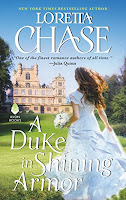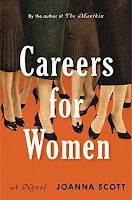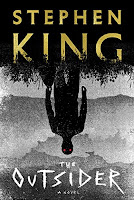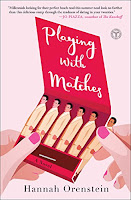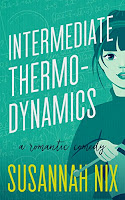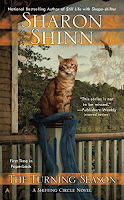The Boundless Deep, by Kate Brallier
>> Sunday, September 30, 2018
TITLE: The Boundless Deep
AUTHOR: Kate Brallier
COPYRIGHT: 2008
PAGES: 432
PUBLISHER: Forge
SETTING: Contemporary US
TYPE: Romance
SERIES: None
I'm a total sceptic in real life, but in fiction, past lives/timeslip plotlines are my crack. Most authors can't do them as well as the masters, such as Susanna Kearsley or Barbara Michaels, but whenever I come across one, I can't help but buy the book and try.Philosophers have said that we travel through our lives, past and present, surrounded by the same souls, that we spend each new life trying to mend the hurts we've done to one another in the past. In The Boundless Deep, Kate Brallier explores this idea in a combination of strong storytelling and gifted characterization.
Grad student Liza has long been plagued by vivid dreams of whaling. Offered the chance to trade her land-locked existence for a summer on Nantucket, the well-preserved heart of New England's whaling trade, Liza jumps at the chance, eager to see how well her dreams mesh with historical reality.
The answer is: all too well. Liza's dreams become highly sexual; her visions of ship's captain Obadiah Young grow increasingly intense. At times the past and present mix before her eyes, with automobiles replaced by horse-drawn carriages.
Though skeptical of Liza's claims of a past life, whaling museum curator Adam is drawn to Liza's intense desire to know the truth—about herself, and about Obadiah, accused of murdering his beautiful, young wife. But Adam isn't the only man with an interest in Liza—handsome Lucian, whose home Liza is sharing for the season, has designs on her as well.
In a single summer, Liza must answer the riddle of her dreams, reunite lovers separated by death, solve a hundred-year-old murder... and figure out her heart's desire.
In The Boundless Deep, grad student Liza has had strange dreams about whaling ships since she can remember. Detailed, recurring dreams, so vivid that she can't help thinking they might be something more than dreams. When her kooky roommate Jane finds out, she's fascinated. She's also determined to do something about it.
Jane is in a position to do so, because her Aunt Kitty owns a large house in Nantucket, and is happy to have Jane and Liza join her other nephew, the mysterious Lucian, as guests for the summer. And as soon as Liza gets there, she starts having strange spells, 'recognising' the house as it used to be a couple of centuries earlier, and her dreams start getting more frequent and vivid. More and more, she dreams of the man who built the house, Obadiah Young. All sorts of dreams, including vivid, erotic ones of having sex with him. It seems the dreams actually have a point now, and there's something Liza is meant to find out.
I had fun reading this. It's a bit slow-moving and not an awful lot actually happens, but it was still pleasant to read. I particularly enjoyed the atmosphere of both contemporary and historical Nantucket, as well as the stuff going on in Liza's life in the present day. There's a lot to keep her occupied in the present as well, between a summer job at the local historical museum and a developing relationship with one of the curators, the very hunky Adam. But there's something about Lucian that intrigues her as well. I'm not the biggest fan of the love triangle setup, but this was actually really nicely done.
I also quite like the dynamics between the characters. Liza and Jane have a really nice, supportive friendship. I thought at the beginning that Jane was going to be an unbearable 'quirky' character, but though she's definitely quirky, she's really cool and grounded. I also liked how they all interacted with the rest of the people in the house, and how the two young women, together with Lucian, Aunt Kitty and Aunt Kitty's boyfriend, Jim, make up a sort of team for the summer.
And this team is very supportive of what Liza's going through. That was a bit strange, in a way, as it felt like everyone was a bit too ready to accept that Liza's visions were true. But it worked for me.
What didn't work for me so much was the stuff in the past. I mean, I liked how it related to the present, but the actual storyline probably didn't strike me as it was meant to strike me. I don't want to give too much away, because what Liza thinks is going on at first is not quite what turns out to be happening, but all I'll say is that central relationship in the past was clearly meant to be super-romantic, but I didn't find it to be so in the least.
Still, that didn't really matter too much for me, and there was more than enough in the present day that I found super-romantic to compensate :)
MY GRADE: A B. Read more...
 TITLE:
TITLE:  TITLE:
TITLE:  TITLE:
TITLE:  She’s a maid-of-all-work, and he’s a valet of no play...
She’s a maid-of-all-work, and he’s a valet of no play...  Mary Shelley began writing Frankenstein when she was only eighteen. At once a Gothic thriller, a passionate romance, and a cautionary tale about the dangers of science, Frankenstein tells the story of committed science student Victor Frankenstein. Obsessed with discovering the cause of generation and life and bestowing animation upon lifeless matter, Frankenstein assembles a human being from stolen body parts but; upon bringing it to life, he recoils in horror at the creature's hideousness. Tormented by isolation and loneliness, the once-innocent creature turns to evil and unleashes a campaign of murderous revenge against his creator, Frankenstein.
Mary Shelley began writing Frankenstein when she was only eighteen. At once a Gothic thriller, a passionate romance, and a cautionary tale about the dangers of science, Frankenstein tells the story of committed science student Victor Frankenstein. Obsessed with discovering the cause of generation and life and bestowing animation upon lifeless matter, Frankenstein assembles a human being from stolen body parts but; upon bringing it to life, he recoils in horror at the creature's hideousness. Tormented by isolation and loneliness, the once-innocent creature turns to evil and unleashes a campaign of murderous revenge against his creator, Frankenstein. Gina Morales wants to win. It’s her fifth season on The Dance Off, a top-rated network TV celebrity dance competition, and she’s never even made it to the finals. When she meets her latest partner, she sees her chance. He's handsome, rippling with muscles, and he stars on the popular Alaskan wilderness reality show Living Wild. With his sexy physique and name recognition, she thinks he’s her ticket to the finals—until she realizes they’re being set up.
Gina Morales wants to win. It’s her fifth season on The Dance Off, a top-rated network TV celebrity dance competition, and she’s never even made it to the finals. When she meets her latest partner, she sees her chance. He's handsome, rippling with muscles, and he stars on the popular Alaskan wilderness reality show Living Wild. With his sexy physique and name recognition, she thinks he’s her ticket to the finals—until she realizes they’re being set up. TITLE:
TITLE:  TITLE:
TITLE:  TITLE:
TITLE:  ‘You can’t get around Kate Battista as easily as all that’
‘You can’t get around Kate Battista as easily as all that’  From the acclaimed PEN-Faulkner Award-winning author of The Great Man comes a riveting high-seas adventure that combines Christensen's signature wit, irony, and humanity to create a striking and unforgettable vision of our times.
From the acclaimed PEN-Faulkner Award-winning author of The Great Man comes a riveting high-seas adventure that combines Christensen's signature wit, irony, and humanity to create a striking and unforgettable vision of our times. A strange twist of fate brings Elizabeth Jones face to face with her idol, the brilliant, eccentric historian Margaret Rosenberg, at the Copenhagen Airport. An even stranger accident makes Elizabeth the esteemed scholar's new private assistant. But luck can go from good to bad in an instant -- and less than twenty-four hours later, the great lady is kidnapped by persons unknown. Suddenly desperate in a foreign land, Elizabeth must cast her lot with Rosenberg's handsome, insufferable son Christian in hopes of finding her vanished benefactor. On a trail that leads from modern wonders to ancient mystery, a determined young woman and an arrogant "prince" must uncover shocking secrets carefully guarded in the beautiful Danish city. And they must survive a mysterious affair that is turning darker and deadlier by the hour.
A strange twist of fate brings Elizabeth Jones face to face with her idol, the brilliant, eccentric historian Margaret Rosenberg, at the Copenhagen Airport. An even stranger accident makes Elizabeth the esteemed scholar's new private assistant. But luck can go from good to bad in an instant -- and less than twenty-four hours later, the great lady is kidnapped by persons unknown. Suddenly desperate in a foreign land, Elizabeth must cast her lot with Rosenberg's handsome, insufferable son Christian in hopes of finding her vanished benefactor. On a trail that leads from modern wonders to ancient mystery, a determined young woman and an arrogant "prince" must uncover shocking secrets carefully guarded in the beautiful Danish city. And they must survive a mysterious affair that is turning darker and deadlier by the hour. An aspiring suspense novelist lands in the middle of a real crime, in the first in a captivating new series by the author of the Undercover Dish Mysteries.
An aspiring suspense novelist lands in the middle of a real crime, in the first in a captivating new series by the author of the Undercover Dish Mysteries. Where do you run to when your life has fallen apart?
Where do you run to when your life has fallen apart? TITLE:
TITLE:  TITLE:
TITLE:  TITLE:
TITLE:  TITLE:
TITLE:  TITLE:
TITLE:  #1 New York Times bestselling author Nora Roberts introduces you to the Montgomery brothers—Beckett, Ryder, and Owen—as they bring an intimate bed-and-breakfast to life in their hometown.
#1 New York Times bestselling author Nora Roberts introduces you to the Montgomery brothers—Beckett, Ryder, and Owen—as they bring an intimate bed-and-breakfast to life in their hometown. From Atlanta’s wealthiest suburbs to its stark inner-city housing projects, a killer has crossed the boundaries of wealth and race. And the people who are chasing him must cross those boundaries, too. Among them is Michael Ormewood, a veteran detective whose marriage is hanging by a thread—and whose arrogance and explosive temper are threatening his career. And Angie Polaski, a beautiful vice cop who was once Michael’ s lover before she became his enemy. But unbeknownst to both of them, another player has entered the game: a loser ex-con who has stumbled upon the killer’s trail in the most coincidental of ways—and who may be the key to breaking the case wide open.
From Atlanta’s wealthiest suburbs to its stark inner-city housing projects, a killer has crossed the boundaries of wealth and race. And the people who are chasing him must cross those boundaries, too. Among them is Michael Ormewood, a veteran detective whose marriage is hanging by a thread—and whose arrogance and explosive temper are threatening his career. And Angie Polaski, a beautiful vice cop who was once Michael’ s lover before she became his enemy. But unbeknownst to both of them, another player has entered the game: a loser ex-con who has stumbled upon the killer’s trail in the most coincidental of ways—and who may be the key to breaking the case wide open.



